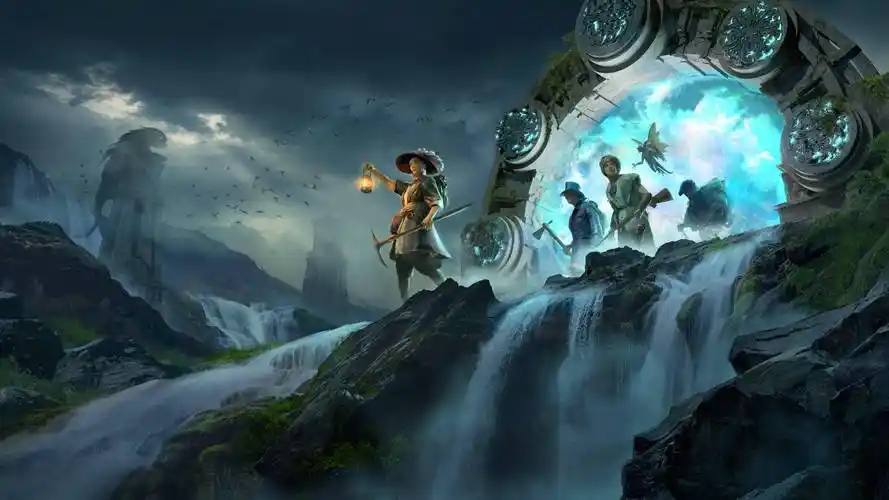The video game industry is a relentless churn of announcements, releases, and updates. Yet, amidst this constant noise, certain stories cut through, not just as headlines, but as seismic events that fundamentally reshape how we talk about, perceive, and critique the medium. These aren't just news items; they are cultural inflection points that leave an indelible mark on gaming discourse.
The Whistleblower and the Workplace: #RiotWalkout & The Activision Blizzard Lawsuit
For decades, discussions about "crunch culture" and poor workplace conditions were relegated to anonymous forum posts and industry whispers. That changed dramatically. The 2018 Kotaku investigation into the toxic culture at Riot Games was a major catalyst, but the dam truly broke in 2021 when the California Department of Fair Employment and Housing filed a lawsuit against Activision Blizzard, alleging a pervasive "frat boy" culture of harassment and discrimination.
The discourse shifted overnight. It was no longer a question of if crunch existed, but a widespread, public condemnation of how these multi-billion dollar companies treated their employees. The subsequent employee-led walkout at Activision Blizzard and the earlier #RiotWalkout transformed the conversation from passive concern into active, collective action. Gamers were no longer just consumers; they were forced to become ethical stakeholders, questioning the human cost of their entertainment. This story irrevocably tied game development to labor rights in the public consciousness, making it impossible to discuss a game's release without also considering the conditions under which it was made.
The Phantom Menace: The Infamous Cyberpunk 2077 Launch
The saga of Cyberpunk 2077 is a masterclass in how hype, mismanagement, and player backlash can converge to change industry practices. For years, the game was the subject of breathless anticipation, built on the reputation of CD Projekt Red following The Witcher 3. The discourse was one of unbridled excitement and sky-high expectations.
Then, it launched on last-gen consoles. The conversation didn't just change; it inverted. The discourse exploded with videos, threads, and articles documenting a staggering array of bugs, glitches, and performance issues. The narrative instantly switched from one of awe to one of betrayal. This wasn't just a bad launch; it was a catastrophic failure that forced Sony to pull the game from the PlayStation Store—an unprecedented move for a major title.
The lasting impact on gaming discussions was profound. It became the new benchmark for disastrous launches, a cautionary tale cited in discussions about every subsequent major release. It eroded blind trust in developer reputations and amplified calls for more transparent marketing, the end of "downgrade" accusations, and the importance of performance reviews on base hardware. It empowered consumers to be more skeptical, shifting the pre-release discourse from "how amazing will it be?" to "will it actually work?"
The Battle for Preservation: The Nintendo Shutdowns
In 2021, Nintendo announced the impending closure of the Wii U and Nintendo 3DS eShops. This was a business decision, but the discussion it sparked was about something far greater: game preservation. The conversation moved beyond nostalgic disappointment to a sharp critique of the industry's fleeting relationship with its own history.
Gamers, historians, and critics began passionately debating the ethics of allowing entire digital storefronts—and the exclusive games on them—to vanish into nothingness. This story framed game preservation not as a niche hobby for collectors, but as a crucial cultural imperative. It highlighted the fragility of digital-only media and sparked widespread discussion about the right to archive and the moral responsibility of corporations to serve as stewards of their legacy. It forced the community to confront an uncomfortable truth: that in the digital age, games can truly die, and with them, pieces of art history.
The Mainstream Mandate: The Last of Us on HBO
While adaptations have existed for years, the stunning critical and commercial success of HBO's The Last of Us series created a new paradigm for gaming discussions. It didn't just introduce a game's story to a wider audience; it legitimized game narratives in the mainstream cultural arena in a way never seen before.
The discourse expanded beyond gaming circles and into water-cooler conversations everywhere. It validated the emotional depth and sophisticated storytelling that gamers had long argued games possessed. Reviews and think pieces weren't just about whether it was a "good adaptation," but about how it translated interactive empathy into passive viewing, analyzing the changes necessary for a new medium. This story changed the discussion by finally breaking down the hierarchy that placed film and television narratives above those in games. It proved that game stories could not only stand alongside other prestige media but could also become the definitive version of that story for millions.

The Generative Divide: The Rise of AI Tools
The emergence of readily available AI generative tools has ignited one of the most complex and divisive discussions in modern gaming. News of studios using AI for voice generation, concept art, or writing has become a flashpoint for intense debate.
This story has bifurcated gaming discourse. On one side are arguments about efficiency, cost-reduction, and the democratization of development tools. On the other are urgent concerns about artistic integrity, the devaluation of human artists and writers, and the ethical and legal ramifications of training AI on copyrighted work. It has forced the community to grapple with the very definition of artistry in game development and question what the future of the creative process should look like. This is an ongoing story, but it has already permanently installed a new, critical layer to discussions about game creation, one centered on ethics, automation, and the soul of the medium itself.
These stories demonstrate that the most impactful "game news" is rarely just about the games themselves. They are about people, practices, ethics, and culture. They challenge our assumptions, force uncomfortable conversations, and ultimately deepen our understanding of this dynamic and ever-evolving art form. They are the stories that change everything, long after the headlines fade.


















